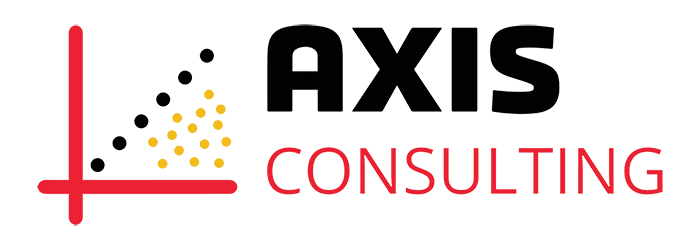After 13 years with NICE in varied and fulfilling roles, I decided to do something I never expected to do – leave the NHS and join a consultancy firm.
It was not a decision I took lightly. NICE is full of amazing people and good friends. But, after speaking with AXIS CEO, Brenda Dooley, I quickly realised she shared my values of honesty and authenticity. Furthermore, AXIS were offering something really exciting – an expansion to the UK to deliver health technology appraisal to NICE but in a manner where the submissions are genuinely personalised to the evaluator context within the Irish and UK markets (more important than ever in the current regulatory and HTA environment post-Brexit!). In return, in my new role as Head of HTA Consulting, AXIS UK, I will be bringing my extensive knowledge and experience at NICE, what it does, how it is changing, and how best to navigate the agency’s pathways in an effective, positive and authentic way.
Moving with the times
At NICE, I held a wide variety of roles that have gave me deep insight into the organisation’s many functions, activities, and objectives. I primarily worked on health technology appraisals, helping to summarise complex clinical and cost effectiveness information so that a multi-disciplinary audience could understand it, ensuring the committee reviewing a health technology had the information it needed to make informed decisions, and supporting health technology developers, patient experts, and clinical experts on their journey through the NICE process. I also worked on NICE Quality Standards, and supported NHS England in the development of specialised commissioning policies. After several years of focusing on individual health technologies, I then moved into a methods-focussed role, where I supported the implementation of NICE’s 2022 manual for technology evaluation. As part of this, I was responsible for developing a new approach to keeping NICE’s processes and methods up to date – the modular approach. This is a key change to NICE’s processes and methods development; moving away from the previous ‘big bang’ style of updating all processes and methods at the same time every few years, and instead developing processes and methods that are agile enough to keep up with the fast pace of innovative change, but also stable and reliable.
Given all of this change, it’s more important than ever that NICE and its partners engage with each other in the right way. However, I realised during my time at NICE that across the life sciences industry and beyond, there is a huge range in understanding of the contact points along the appraisal journey, and approaches to engaging in a collegial and trusted way with NICE teams and committees.
How best to approach engagement with NICE
There are many touchpoints throughout the NICE process, including scoping, decision problem, checkpoint, clarification, technical engagement, committee, and post-committee meetings. These allow opportunities for the company whose medicine is being assessed (and others such as patient and clinical experts), to communicate and meet with NICE, build relationships with the key people who will be working on the topic, and find ways to address any questions about a medicine that may arise during the appraisal process.
During my time working at NICE, I had countless interactions at these touchpoints and beyond with health technology developers and witnessed various ways that they and others approach engagement with NICE. Many engage in a productive, proactive, and friendly way. They follow the process steps as set out in the manual, and provide any additional analyses as requested for example. This builds high levels of trust and keeps the topic running smoothly and predictably throughout the process, minimising the risk of delays to patient access. However, some become so passionate about the specific health technology they are trying to bring to market that this can, on occasion, lead to more combative behaviours. This can include not providing specific analyses as sought by NICE or bypassing the team working directly on the topic to escalate concerns to more senior levels. Whilst this approach can sometimes lead to short-term gain for the individual topic, such as overcoming individual roadblocks in the NICE process, overall this doesn’t help build a trusting relationship between the parties. And trust is so important in the NICE process. Although the NICE team will always ensure everyone is treated fairly irrespective of individual behaviours, and committees will always ensure its decision based on the evidence case made, ultimately these decisions are fraught with uncertainty. If a stakeholder undermines trust, then this becomes another uncertainty that the committee has to manage, further complicating the already complex decision-making.
It’s understandable that companies are enthusiastic about their individual medicines, but it’s important to note that NICE does not look at medicines in isolation; it must look at all medicines that come to the NHS, to make decisions for all products and patients, and to balance the needs of the entire population.
Finding the right set of values
When I joined NICE 13 years ago it was with a clear objective of doing something fulfilling that would help patients and the healthcare system more broadly. NICE do some really great work with getting medicines to patients in need. I want to support companies in their engagement with NICE to make sure it’s done in the right way, which ensures a win-win for both the NHS, of rapid access to cost-effective treatments, and fair reimbursement for those companies driving these innovations forward. To do this, my role at AXIS UK will be working directly with clients to:
- Provide strategic oversight and guidance on how to most effectively deliver what NICE needs to get medicines to patients fast, using my deep knowledge and experience of NICE’s process and methods.
- Act as an “honest broker” in the best interest of our clients. This may at time mean voicing disagreement if I do not consider an approach will achieve the outcome desired, but doing so in a constructive and collaborative way, providing alternative suggestions to achieve a positive result.
- Support clients throughout the NICE process, giving advice on how to approach various key meetings and ensuring that an appropriate member of the AXIS team will be in attendance whenever it’s helpful.
- Oversee the team delivering the technical work, quality assuring it, and ensuring that there is an engaging story to give the health technology the best chance of a fair assessment by NICE.
- Ensure learnings from the NICE submission approach are leveraged for the submission to the SMC and NCPE.
About the author:
Carl Prescott is Head of HTA Consulting UK at AXIS Healthcare Consulting Ltd. AXIS Consulting is a bespoke Consultancy firm which supports pharmaceutical and biopharmaceutical companies in making customised HTA submissions in the UK and Ireland to NICE, SMC and NCPE. Prior to joining AXIS in early December 2023, Carl spent 13 years with NICE in various capacities, most recently in a methods-focused role, supporting the ongoing implementation of the updated Centre for Health Technology Evaluation (CHTE) manual, and developing a new framework for future modular updates of the manual. Carl is an expert in managing decision-making in multidisciplinary expert groups, bringing people together to make robust decisions in challenging, heated, time pressure circumstances, and delivering projects on time. Carl can be contacted at carl@axisconsultinguk.com or at +44 (0) 7553 047 625.

